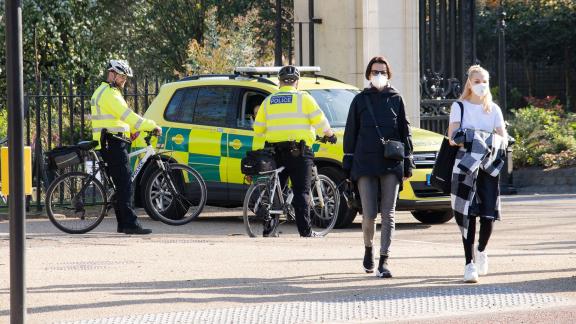Red card to racism: North Bristol NHS Trust

Overview
Incidences of racism were high in the trust. The existing policy aimed at tackling racism was not widely known about and staff felt that in the event of such an incident, the trust did not listen or act. A campaign, developed in partnership, to engage staff with the policy has resulted in increased reporting, higher levels of staff confidence in anti-racism processes and improved staff engagement.
Background
Incidences of racist abuse, violence and microaggressions towards and amongst staff were high. This abuse was not exclusive to black and minority ethnic (BME) staff, with intelligence suggesting this could be related to the imminence of Brexit and the challenging political landscape. There was a policy in place, but this was not widely known about or understood. There was a general feeling amongst staff that in the event of such an incident, the trust did not listen or take action.
The trust had to reassure all parties that this would change. The aim was to make sure staff were aware of the policy and the reporting process. Using the template and branding of the Football Association’s Red Card to Racism campaign, the trust wanted to demonstrate responsiveness and clear boundaries of acceptable behaviour. This included what behaviour warrants action and what staff should do when such an incident occurs.
Action taken
As the policy had existed for a long time, but with little utilisation, the trust was aware that robust communications were needed to revitalise the policy and bring the campaign to life, as well as show managerial and trade union support.
Clear terms of engagement were agreed from the outset to assure all involved, that their voices would be heard, experiences recognized, and input valued.
The trust’s BME network was engaged in the initiative and echoed existing concerns about the current policy. Security staff and the lead on patient engagement were committed to the project throughout. In addition, Avon and Somerset Constabulary provided guidance and advice.
Images used in the Red Card to Racism initiative showed support from colleagues throughout the organisation from board to ward. Videos were produced featuring executives, trade union reps, and staff, showing their support for the campaign, and their experience of it in action.
The role of partnership working
Trade unions raised the issue initially, and were involved from start to finish, developing the original ask of the campaign and signing off the end product. In addition, Black History Month, which was designed and delivered in partnership with trade unions, helped communicate staff experience of racism to senior leaders.
Results and benefits
Increased visibility of this issue has brought to light the impact such behaviour has on individuals, teams, and ultimately, patient care. Staff now feel that their experiences are being heard and understood, and the trust is taking clear action to prevent and address racist incidents.
Education on this issue has led to staff using better definitions and grouping categories when reporting incidents on Datix (an electronic incident reporting system). This in turn has led to more targeted interventions and effective action being taken.
The 2019 NHS Staff Survey showed willingness to report abuse had risen from 42 per cent to 46 per cent, and the willingness to report violent incidents rose from 60 per cent to 72 per cent. An unexpected outcome of this work has been increased engagement with staff generally, not just with regards to this issue.
Sharing learning
Following an article being shared in NHS Employers’ Engagement Brief, NHS organisations have contacted the trust to seek advice on replicating this work, with a view to using a similar approach to tackle violence, racism, and poor behaviour.
Further information
For more information on the project, contact Guy Dickson, Head of People Strategy, North Bristol NHS Trust.



